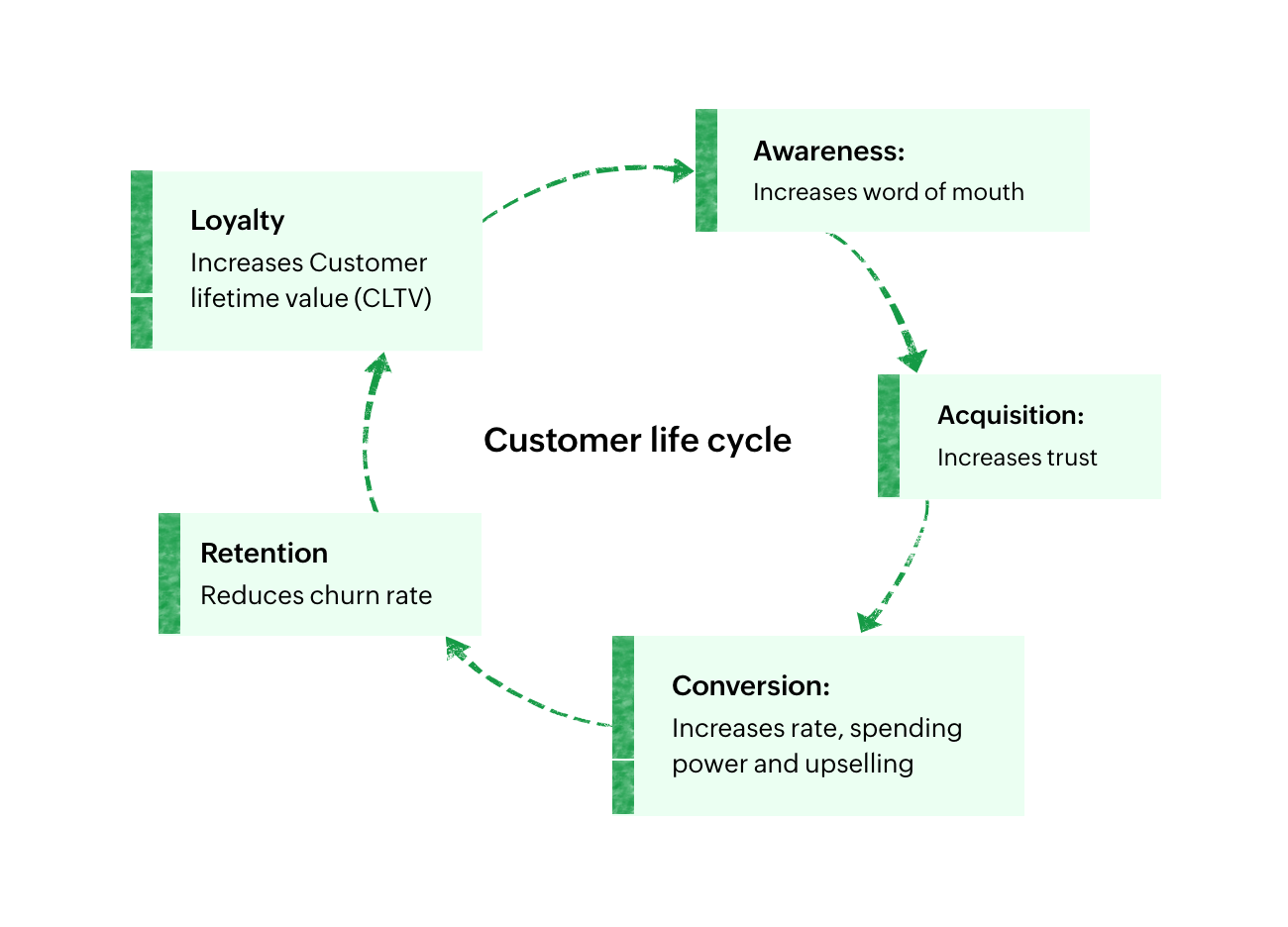What is customer service?
Customer service is the process of providing continuous support and guidance to customers throughout their journey. It is the bridge that connects customers to a business and is the face of a company. When that face beams with confidence, it develops customers’ confidence in the brand. Trust encourages customers to explore and develop loyalty, which increases revenue for your company, bringing you closer to your goals.
There is no doubt that for a business to function smoothly, good customer service is necessary, but it is great customer service that fosters growth.
What is great customer service?
A customer interacts with your business with certain expectations. When these expectations are not only met, but far exceeded, customers are delighted.
To exceed customers' expectations, it is essential to understand their needs. To understand, you need to listen attentively as listening helps you equip yourself with the right resources to provide effective customer service.
Consider the way Sainsbury's, a supermarket in the United Kingdom, went out of its way to humanize the customer experience. It not only responded to the letters of a three-year-old girl, but also took her advice to change the name of their bread from "Tiger Bread" to "Giraffe Bread." This gesture, although small, affected the way people perceived the brand, as it made Sainsbury's appear approachable and friendly. This also set an example for effective customer collaboration.
If you're wondering how great customer service can help your business, here are some of the benefits it brings:
Benefits of great customer service
Customer service vs customer support
Customer service and customer support both help customers throughout their buying journey. Let’s get an understanding of what each of these mean.
Customer service
Customer service is proactive as agents initiate service. A customer service representative handles the needs of both existing and potential customers. This involves making the customer feel welcomed and heard. The following metrics go a long way towards building better relationships with customers.
- Customer Satisfaction Score (CSAT)
- First Contact Resolution (FCR)
- Average Handle Time (AVH)
- First Response Time (FRT)
Customer support
Customer support is reactive as service is provided when requested by a customer. It is synonymous with technical assistance. With extensive product knowledge, customer support handles updating knowledge base articles to foster self-service among customers.
Like customer service, customer support must collect and evaluate feedback for the following metrics:
- Customer Satisfaction Score (CSAT)
- Net Promoter Score (NPS)
- Customer Effort Score (CES)
- Customer churn rate
With these metrics, they get to know about areas needing improvement, and understand customers’ perceptions of the product.
Differences at a glance
Customer service
- Proactive
- Focuses on the overall experience of the customer
- Focuses on the entire customer journey
- Ongoing interaction with customers
- Customer-oriented
Customer support
- Reactive
- Responsible for providing technical assistance
- Focuses on specific parts of the journey
- Issue-based interaction with the customers
- Feature-oriented
Customers help a brand achieve its business goals. You owe everything to them and they deserve the best. The desire for effective customer service is now greater than ever. This necessitates you to have a customer service solution that meets your customers and business requirements.
